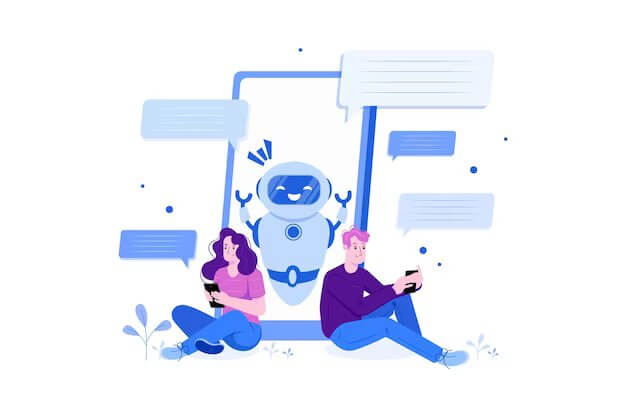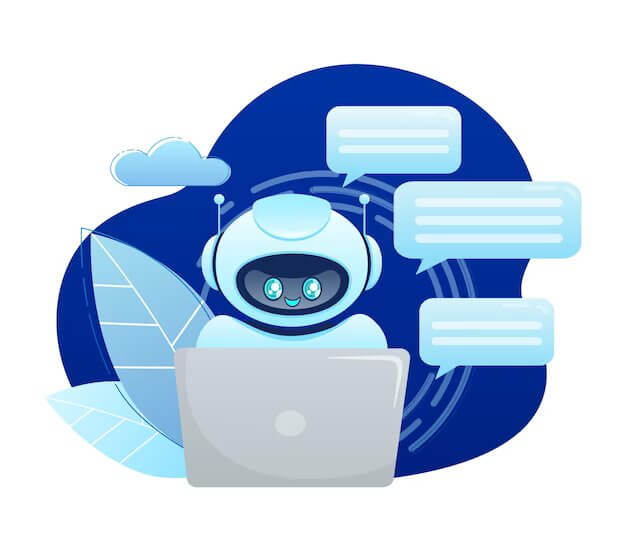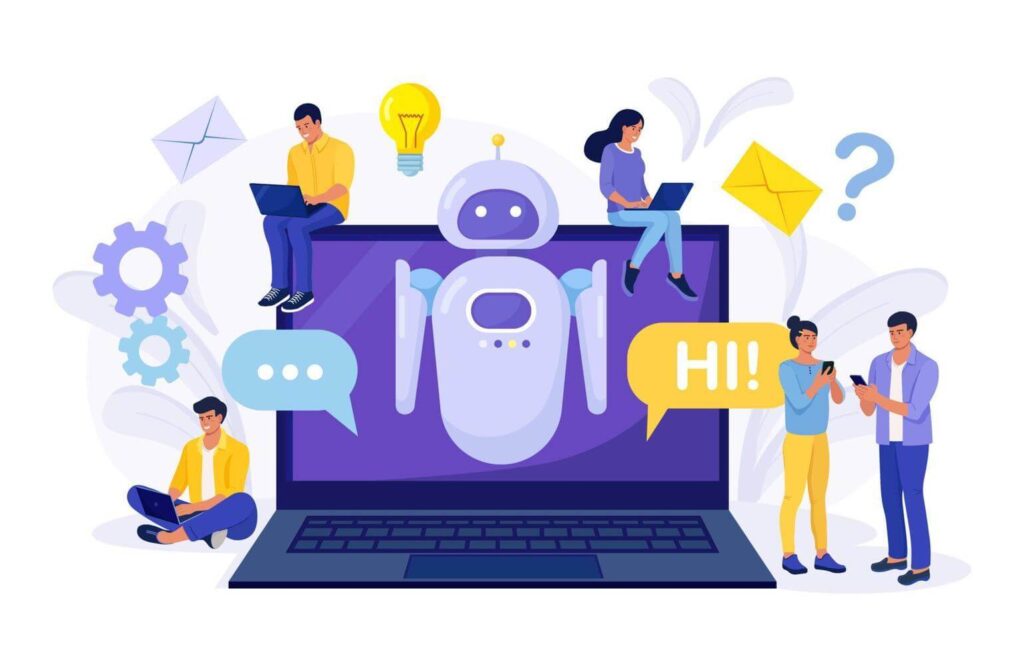The AI Gig Economy: Unlocking the Freelance Potential of Artificial Intelligence

In a world where technology is advancing faster than ever, the gig economy has witnessed a remarkable transformation. No longer confined to human freelancers, the gig economy has extended its reach into the realm of artificial intelligence (AI). But what exactly is the AI gig economy, and how is it reshaping the future of work? Let’s dive into this brave new world where algorithms, data, and innovation intersect to unlock the freelance potential of AI.
What is the AI Gig Economy?
The AI gig economy is a revolutionary concept that involves harnessing the power of artificial intelligence to perform tasks traditionally carried out by human freelancers. It’s essentially the marriage of automation and freelancing, where AI systems are employed to complete a wide range of tasks, from content creation and data analysis to customer support and even creative endeavors like art and music composition.
How Does the AI Gig Economy Work?
The inner workings of the AI gig economy are fascinating. At its core, it relies on sophisticated AI algorithms and machine learning models capable of understanding, processing, and generating human-like content. These AI systems are trained on vast datasets, allowing them to mimic human abilities in various domains.
But where do freelancers fit into this equation? Well, they’re the ones who leverage AI tools and platforms to streamline their work. Think of it as humans collaborating with AI, enhancing their productivity and efficiency. It’s a symbiotic relationship that’s shaping the future of work in profound ways.
The Rise of AI-Powered Freelancing Platforms
As the AI gig economy gains momentum, a plethora of AI-powered freelancing platforms has emerged. These platforms serve as marketplaces where freelancers can access cutting-edge AI tools and services. Here are a few noteworthy platforms leading the charge:
| Platform Name | Key Features |
| AIVA | AI-driven music composition and production tool. |
| GPT-3 | Natural language processing AI for content generation. |
| Upwork | Integrating AI for better job matching and recommendations. |
| ChatGPT | AI-driven chatbots for customer support and engagement. |
These platforms empower freelancers to tackle tasks more efficiently and at scale, ultimately expanding their earning potential.
AI and Content Creation

One of the most transformative applications of AI in the gig economy is content creation. With AI-powered tools like GPT-3, freelancers can automate the generation of blog posts, marketing copy, and product descriptions. This not only saves time but also ensures consistent, high-quality content.
AI-Generated Content Pros and Cons
Pros:
- Efficiency: AI can produce content at a much faster pace than humans.
- Consistency: AI maintains a uniform tone and style across content.
- Scalability: Freelancers can handle a higher volume of work with AI assistance.
Cons:
- Lack of Creativity: AI struggles with truly creative and imaginative content.
- Quality Control: Human oversight is essential to ensure accuracy and relevance.
- Ethical Concerns: Issues like plagiarism may arise if not properly managed.
The Freelancer’s Role in the AI Gig Economy
You might be wondering, “If AI can do so much, what’s left for human freelancers?” Well, fret not! The human touch is irreplaceable, even in the age of AI. Here’s where freelancers still shine:
- Creativity and Innovation: While AI can churn out content efficiently, it struggles to come up with innovative ideas and truly creative works. Freelancers excel in ideation, bringing fresh perspectives and unique concepts to the table. So, if you’re an artist, writer, or innovator, the AI gig economy can complement your skills, not replace them.
- Quality Assurance: AI is a powerful tool, but it’s not infallible. Freelancers play a crucial role in quality assurance. They review, refine, and enhance AI-generated content to ensure it meets the highest standards. Think of it as a human-AI collaboration for the best of both worlds.
- Ethical Decision-Making: Ethical concerns surrounding AI are real. Freelancers bring ethics and judgment to the forefront, making sure AI is used responsibly and in alignment with moral and legal standards. This oversight is essential for maintaining trust in the AI gig economy.
Opportunities and Challenges
The AI gig economy opens up a world of opportunities, but it’s not without its challenges. Let’s explore both sides of the coin.
Opportunities for Freelancers:
- Diversification of Skills: Freelancers can expand their skill sets by incorporating AI tools into their workflows, making them more versatile and in-demand.
- Increased Efficiency: With AI assistance, freelancers can complete tasks faster and take on more projects, leading to higher income potential.
- Access to Premium Tools: AI-powered platforms often provide access to premium tools that freelancers might not afford on their own.
Challenges to Navigate:
- Job Displacement: Some low-skilled tasks may become obsolete as AI takes over, potentially displacing certain freelancers.
- Ethical Concerns: Ensuring AI is used ethically and responsibly requires vigilance and regulation, which can be challenging.
- Skill Requirements: Freelancers need to invest time in learning and adapting to new AI technologies, which can be daunting.
The Future of Work: Human-AI Collaboration

The AI gig economy isn’t about replacing humans; it’s about empowering them. As AI continues to evolve, so too will the roles and opportunities for freelancers. It’s a dynamic landscape where collaboration between humans and AI will be the key to success:
- Building a Hybrid Workforce: The future belongs to those who can seamlessly integrate AI into their workflows. Freelancers who embrace AI tools and technologies will be better positioned to thrive in this evolving gig economy.
- Adapting and Learning: Freelancers need to be adaptable and willing to learn. The AI gig economy is a fast-paced environment where staying updated with the latest AI advancements is crucial.
- Ethics in the Spotlight: Ethical considerations will become more prominent. Freelancers and organizations alike will need to establish clear guidelines for responsible AI usage.
The AI gig economy is a testament to human ingenuity and technological progress. It’s a world where AI and freelancers collaborate to achieve remarkable feats. As we look ahead, the question isn’t whether AI will replace freelancers; it’s how freelancers will leverage AI to reach new heights of productivity, creativity, and success. So, if you’re a freelancer, embrace the AI revolution – your gig economy journey is about to get even more exciting.
Frequently Asked Questions (FAQ) – The AI Gig Economy: Unlocking the Freelance Potential of Artificial Intelligence
Here are some common questions about the AI gig economy and how it’s reshaping the future of work:
Q1: What is the AI gig economy?
A1: The AI gig economy refers to the utilization of artificial intelligence (AI) in freelancing and job marketplaces. It involves using AI algorithms and tools to perform tasks that were traditionally carried out by human freelancers, thereby enhancing productivity and efficiency.
Q2: How does the AI gig economy work?
A2: In the AI gig economy, AI systems are employed to complete various tasks, such as content creation, data analysis, customer support, and more. Human freelancers collaborate with AI tools and platforms to streamline their work, resulting in a symbiotic relationship between humans and AI.
Q3: What are some examples of AI-powered freelancing platforms?
A3: Several AI-powered freelancing platforms have emerged. Examples include AIVA for music composition, GPT-3 for natural language processing, Upwork for job matching, and ChatGPT for chatbots in customer support.
Q4: How is AI used in content creation within the gig economy?
A4: AI is used in content creation to automate tasks like generating blog posts, marketing copy, and product descriptions. Tools like GPT-3 can produce content efficiently and consistently. However, human oversight is essential to maintain creativity and quality.
Q5: What role do human freelancers play in the AI gig economy?
A5: Human freelancers excel in areas such as creativity, innovation, quality assurance, and ethical decision-making. They bring unique ideas, refine AI-generated content, and ensure that AI is used responsibly and ethically.
Q6: What opportunities does the AI gig economy offer to freelancers?
A6: The AI gig economy offers freelancers opportunities to diversify their skills, increase efficiency, and access premium AI tools. It can lead to higher income potential and make freelancers more versatile.
Q7: What challenges do freelancers face in the AI gig economy?
A7: Challenges include the potential displacement of low-skilled tasks, ethical concerns regarding AI usage, and the need for freelancers to adapt and learn new AI technologies to stay competitive.
Q8: How can freelancers prepare for the future of work in the AI gig economy?
A8: Freelancers can prepare for the future by embracing AI tools, staying updated with AI advancements, and establishing clear guidelines for responsible AI usage. Building a hybrid workforce that combines human and AI capabilities is key to success.
Q9: Is the AI gig economy replacing human freelancers?
A9: No, the AI gig economy is not about replacing humans but empowering them. Human-AI collaboration is the future, and freelancers who embrace AI technologies will thrive in this evolving landscape.
Q10: What is the significance of ethics in the AI gig economy?
A10: Ethics are crucial in the AI gig economy to ensure responsible AI usage. Freelancers and organizations need to establish guidelines to address ethical concerns, such as bias, privacy, and transparency, to maintain trust and integrity in AI-driven work.